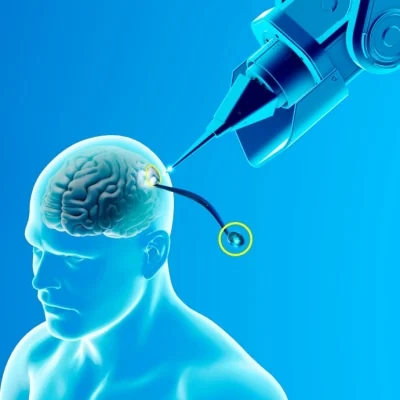In a notable development within the field of brain-computer interface technology, the first human subject implanted with Neuralink's brain chip in January 2024 has demonstrated the ability to control a computer mouse through thought alone. This update was provided by Elon Musk, the entrepreneur behind Neuralink, who reported the patient's successful recovery and newfound capability without mentioning any adverse side effects.
Following the receipt of approval for human trials in September, Neuralink achieved this milestone by implanting a sophisticated chip in a volunteer last month. The company has focused its efforts on developing a device that allows for the manipulation of a computer cursor or keyboard through mental commands.
This process involves the precise placement of a brain-computer interface implant into a brain area associated with movement intention. The implantation is carried out by a robot, which positions 64 delicate threads to facilitate the recording and transmission of brain signals. These signals are then decoded by an application, translating the user's intended movements into actions. The device is powered by a battery that is rechargeable via wireless technology.
Musk has outlined ambitious plans for Neuralink, suggesting its potential application in treating a variety of conditions, including obesity, autism, depression, and schizophrenia, through quick and minimally invasive surgical methods.
The company's first product, named 'Telepathy', aims to enable users to control digital devices through thought. Musk has highlighted the transformative potential for individuals with mobility issues, envisioning a future where communication could be as efficient as the fastest typists.
Despite its advancements, Neuralink has faced scrutiny over its safety protocols and was valued at approximately €4.6 billion last year. The company has also been fined for breaches related to the transportation of hazardous materials, highlighting the regulatory challenges faced by such innovative technologies.
This progression marks a significant step in the fusion of technology with human cognitive functions, potentially leading to enhanced human-machine interactions. However, the journey of Neuralink underscores the complex ethical and regulatory considerations inherent in the development of brain-computer interfaces.
Source: Reuters
Image Credit: iStock






